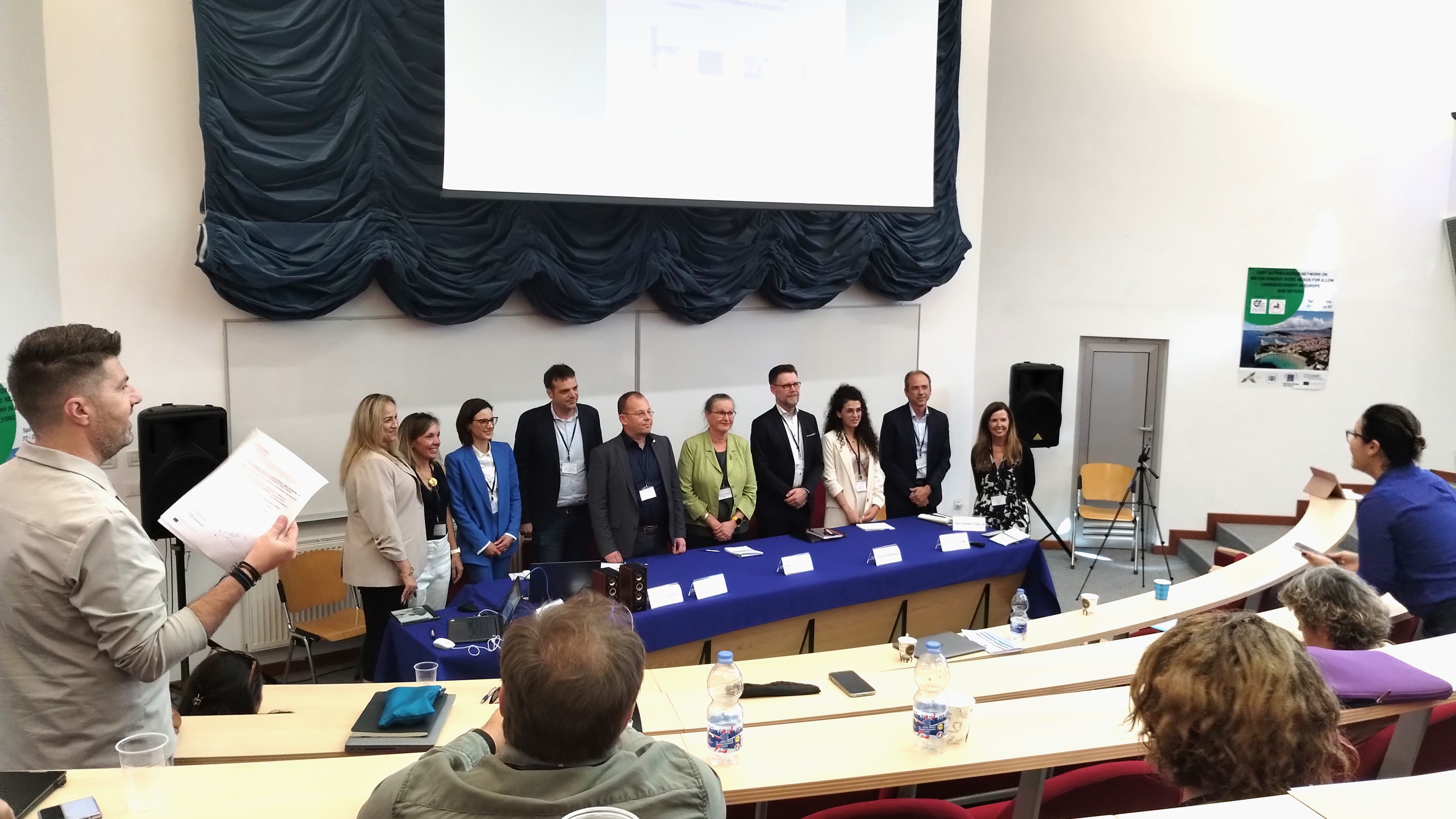How can we accelerate sustainable policies along WEFE Nexus lines? Is it possible to close the gap between science and policymaking? How can we keep decision-makers and other stakeholders engaged long and deep enough to foster new connections across sectors, institutions and actors?
GWP-Med participated in the Nexus Regional Stakeholder’s Forum of Stakeholders in South Europe, organised by NexusNet COST Action in Croatia on 28 September 2023, hosted by the University of Split. The Forum focused on Nexus theory and practice in the Mediterranean and was hosted by the University of Split and co-organised by several EU Horizon and PRIMA sister projects, including Nexogenesis, Bionext, iMermaid, MagoPrima, Arsinoe and Retouch Nexus and H2020 REXUS, where GWP-Med is leading the Communication and Dissemination Work Package.
REXUS Coordinator Jose Gonzalez Piqueras (above), from Universidad de Castilla-La Mancha, stressed in his interventions during the lively panel discussions, that the key question for scientists is how to achieve impact beyond academia: “We need to venture beyond the lab and our models, and influence decisions, providing tools that decision-makers and users can use. This is precisely the aim of the REXUS project, whose motto is ‘From Nexus Thinking to Nexus doing’”.
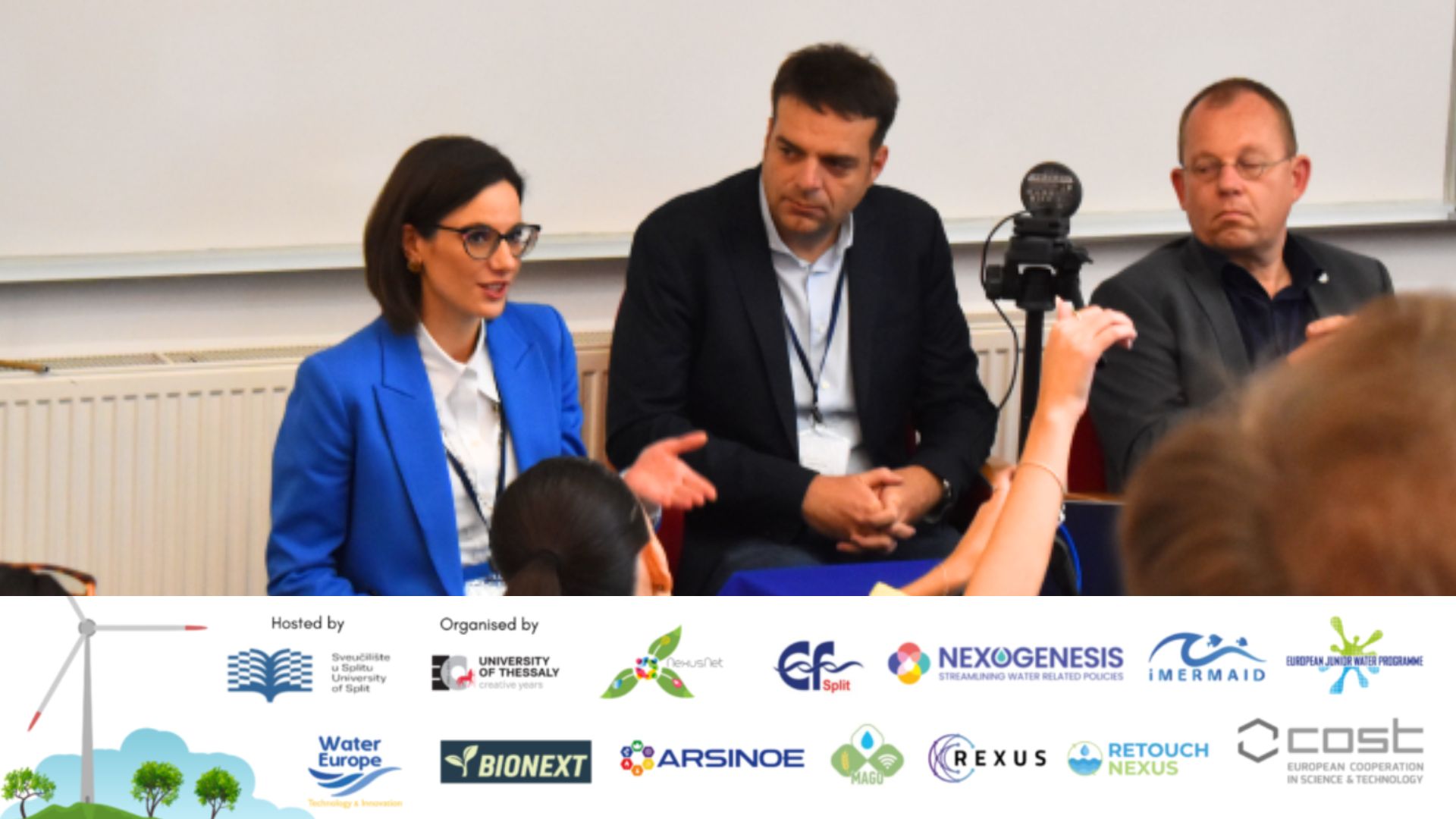
Several panelists in the Forum contributed related insights. Maria Vrachioli (above, left), from the University of Munich, stressed that while there have been great advances in scientific WEFE Nexus modelling, we are still facing challenges regarding both data availability, as well as conveying unified messages in a common language across disciplines. She also raised the challenge of engaging stakeholders actively, but without ‘burning them out’.
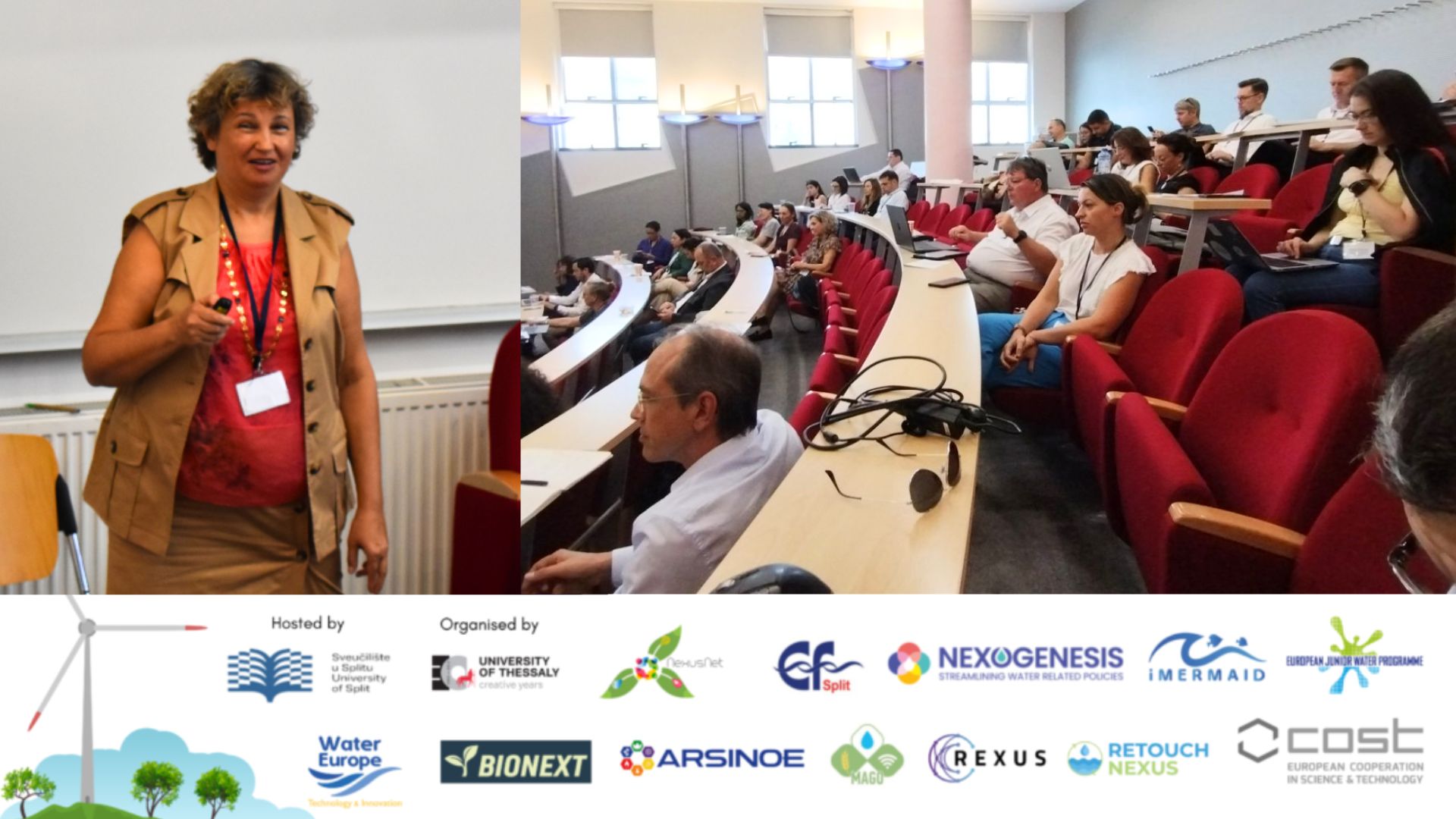
A presentation on the results of a series of interviews with stakeholders involved in EU Nexus projects by Svetlana Klessova (above, left), G.A.C. Group, shed important light on the motivations for joining and staying engaged. ‘What’s in it for me?’ is an urgent question from the perspective of stakeholders. Maintaining interest long enough to create human and institutional ties across sectors is not easy. While most people may enjoy expressing their views the first time they attend a Nexus stakeholder meeting, in order to keep coming, they will have to see something concrete advancing. (“Stakeholders come to the first workshop… but will they join the second workshop?”)
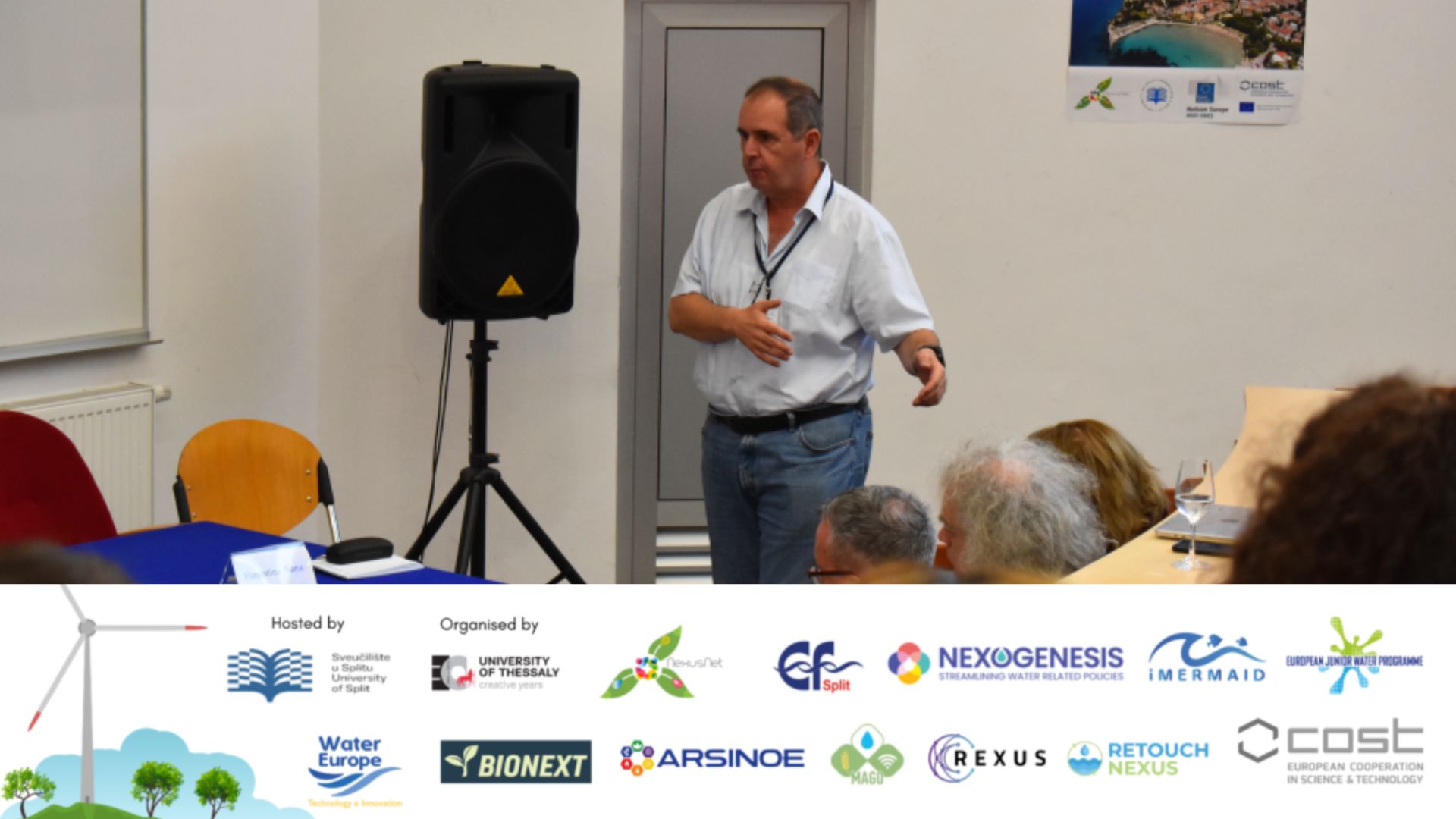
Manuel Sapiano (above), CEO of the Energy and Water Agency, a planning authority in Malta, and long-time collaborator of GWP-Med in the Alter Aqua programme, reinforced these points, stressing that to engage stakeholders effectively we need to move beyond our ‘comfort zone’, and acknowledge and address people’s different needs and motivations.
In the REXUS project, this principle has guided the development of Learning and Action Alliances in the 5 REXUS pilots since the outset, moving in concrete steps which can be used to inform policy. In some cases, this has already yielded impressive results, such as the adoption of the new tools for calculating Water Accounting and Footprint for the Júcar River Basin in Spain, one of its pilot areas, into the published Júcar River Basin Management Plan.
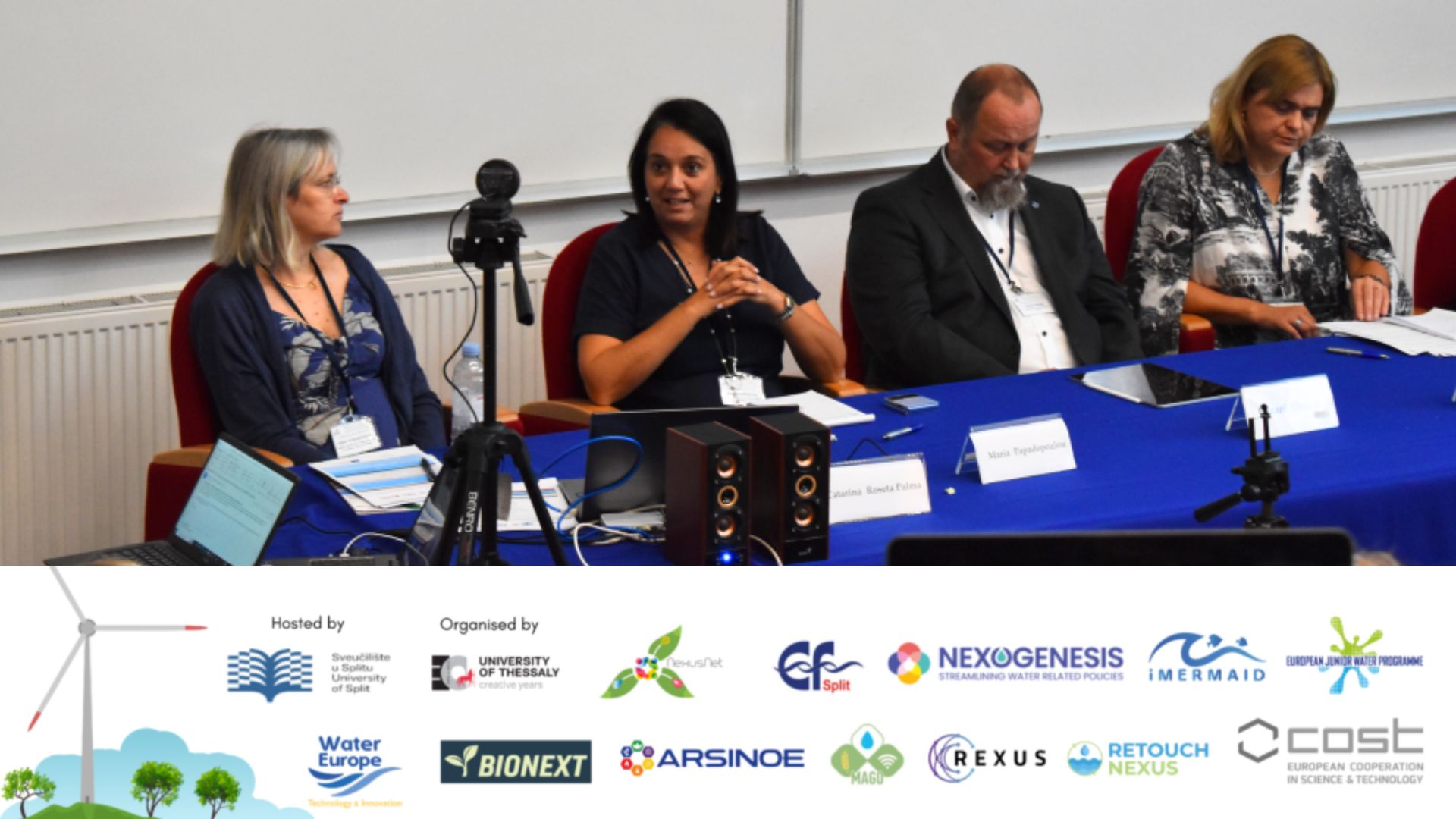
Even though an EU-wide systemic shift along WEFE Nexus lines may be some way off, many concrete examples of Nexus-inspired applications in policy were shared. Maria Papadopoulou (above, second from left), from the Natural Environment and Climate Change Agency, Greece, highlighted that the Nexus perspective has informed Greek climate law; it has also helped open up important discussions about the footprint of the shipping and transportation sectors. Nexus is also informing the choice of the most sustainable solutions to address water scarcity in small Croatian islands, said Alena Vlasic, from the ‘Croatian Waters’ water management authority.
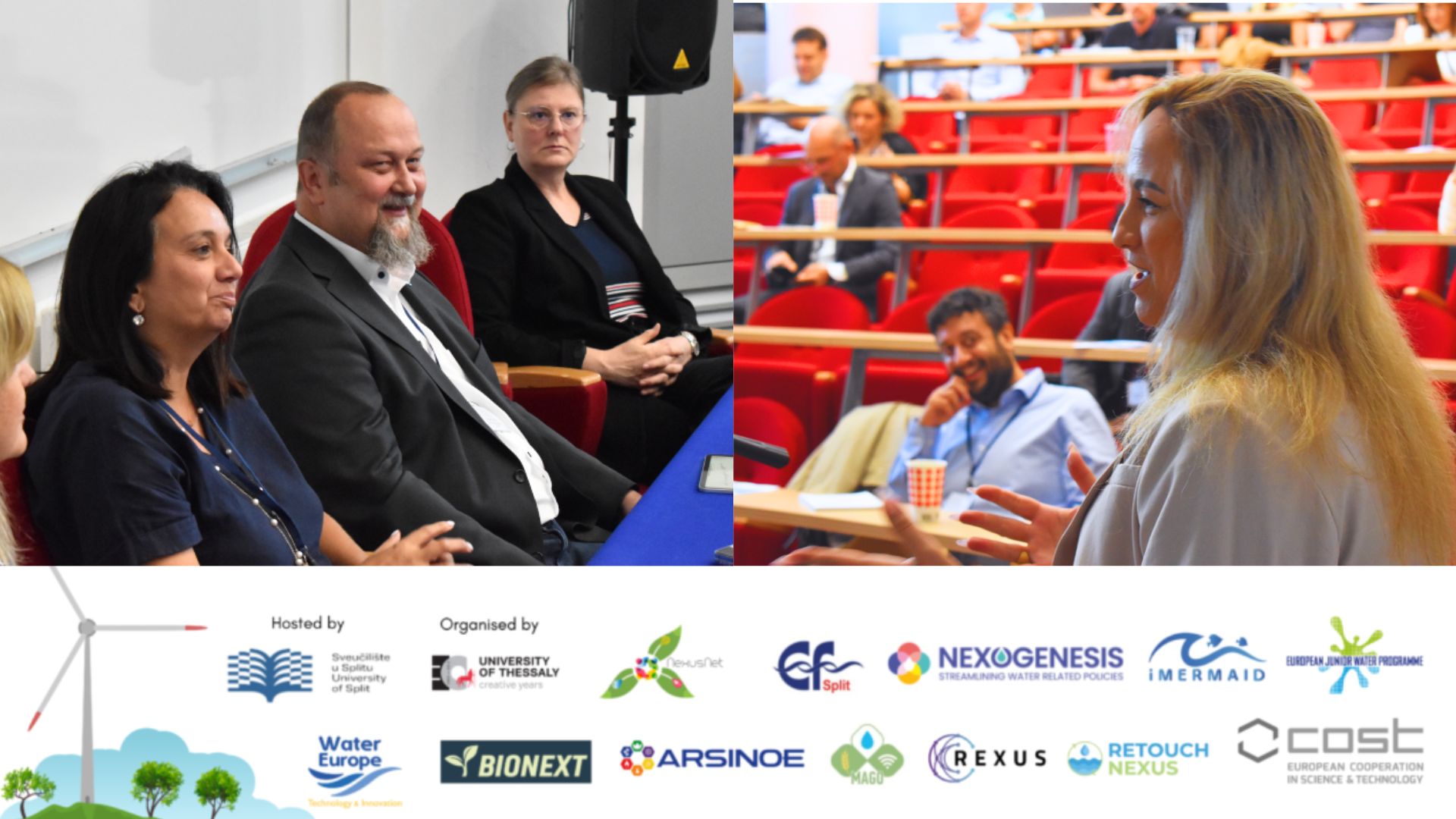
Chrysi Laspidou (above, right) from the University of Thessaly and Eduard Doujak (above, left center) from the University of Vienna engaged in an enlightening discussion on how the Nexus cross-sector perspective helps uncover hidden inconsistencies, like using renewable energy in an unsustainable way; which is the case in some hydropower projects where ecosystems bear the hidden cost.
Giving her take on the conclusions of the Forum, Barbara Willaarts, from iCatalist, leader of Stakeholder Engagement in the REXUS project, stressed the need not to shy away from asking difficult questions, like: how can we effectively communicate results, in a way which can be understood, and cannot be ignored, by policymakers?
Reflecting on the outcomes of the Forum, Nikos Skondras, GWP-Med Senior Programme Officer, emphasized the importance of applied WEFE Nexus pilots, showcasing the benefits and feasibility of the Nexus approach. Such pilots include the recent Matchmaker II project demonstrations for sustainable and climate resilient irrigation. It involved the construction of wetlands to further treat wastewater from secondary to tertiary level, to irrigate new climate-resilient plants, with pumping powered by a new installation of renewable solar energy in 6 farms in Jordan and Palestine.
The question of finding the most effective ways to translate WEFE Nexus scientific breakthroughs into policy remains open. It is the key challenge that drives forward the efforts of REXUS and its sister EU Nexus projects. Synergies among projects, such as in the recent NexusNet Forum, make it all the more probable that the answer will come sooner rather than later.
